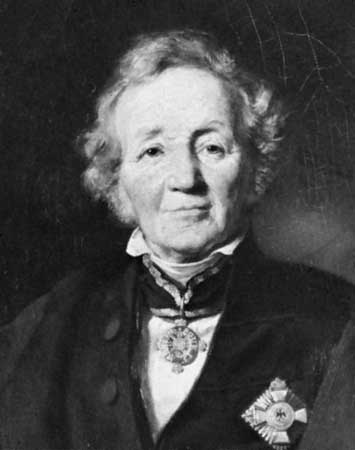 Leopold von Ranke (1795-1886), the nineteenth-century German historian, is generally considered as the Father or Columbus of modern history and the Father of modern scientific history. He is also known as the founding father of Empirical historiography and he stood for objectivity. It was Ranke who must be credited with the beginning of modern historiography.
Leopold von Ranke (1795-1886), the nineteenth-century German historian, is generally considered as the Father or Columbus of modern history and the Father of modern scientific history. He is also known as the founding father of Empirical historiography and he stood for objectivity. It was Ranke who must be credited with the beginning of modern historiography.
Important Works of Ranke
· History of the Latin and Teutonic Nations
· History of the world
· History of the Popes
· History of the Reformation in Germany
· French History
· English History
· Prussian History
· Published a journal entitled Historische Zeitschrift
Berlin Revolution
Ranke was a Professor of history at Berlin University. He brought fundamental changes in the writing of modern history. Thus his revolutionary contributions to the historical writing are described as Berlin Revolution.
Contributions of Ranke
Objectivity – It was Ranke who laid the foundation of a genuinely ‘objective’ historiography. “Strict presentation of the fact is the supreme law of history and the duty of the historian is to show what actually happened”. He clearly distinguished history from literature and philosophy. By doing so, he attempted to rid it of an overdose of imagination and metaphysical speculation. For him, the historians’ job was to investigate the past on its own terms and to show to the readers ‘how it essentially was’. The objectivist tradition believed in both the reality of the past as well as in the possibility of its mirror representation.
Historicism – Ranke believed that the past should be understood in its own terms and not those of the present. In Ranke’s opinion, the historian should avoid the present-centric concerns while studying the past. This idea of Ranke and the Empirical school introduced the notion of historicity. It meant that the past has its own nature which was different from the present. It is the duty of the historian to uncover the spirit of a particular age.
Empiricism – Ranke was an Empiricist who believed that knowledge is derived only through sense experience. And the knowledge of the past can come from the sources which are the objective embodiments of the experiences of the people of that particular period. Thus the historian should rely only on the material available in the sources.
Hierarchy of the sources – Ranke wanted the historians to subject the sources to strict examination and look for their internal consistency so as to determine whether they were genuine or later additions. He wanted the historians to critically examine and verify all the sources before reposing their trust in them. But, once it was proved that the records were genuine and belonged to the age which the historian was studying, the historian may put complete faith in them. He called these records primary sources and maintained that these sources would provide the foundations for a true representation of the contemporary period. Thus the historians should trust the archival records more than the printed ones which might be biased. Then there are the other sources produced by people later on. These are known as secondary sources, which indirectly relate to the events.
Ranke also emphasized the importance of providing references. This way all the assertions and statements could be supported by giving full details of the sources from which they were derived.
Ranke differentiated between facts and interpretations. He emphasised the primacy of facts that were supported by the evidences based on the sources. The historians’ job is to first establish facts and then interpret them.
Through his interventions in the field of writing history, Ranke gave a professional status to the subject – of history. However, following the medieval historiographers, he believed that “In all history, God dwells, lives is to be seen”.
thank u sir
ReplyDeleteThanku sir
ReplyDelete